Zinc sulfate; Features and applications
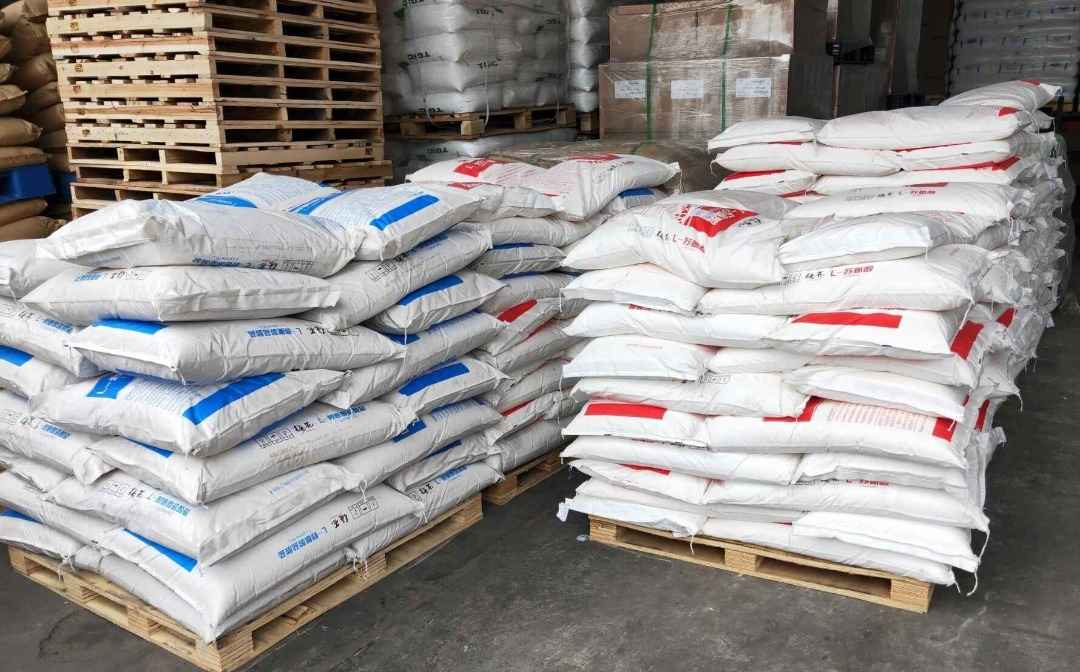
Zinc sulfate along with its characteristics, production method and applications
Zinc sulfate is an inorganic compound with the chemical formula ZnSO4. This compound is used in medicinal form as a food supplement to treat zinc deficiency and prevent disease in people at risk from these diseases. Side effects of zinc sulfate supplements may include abdominal pain, vomiting, headache, and fatigue.
The most common structural form of zinc sulfate includes water of crystallization in the heptahydrate form with the formula ZnSO4 7H2O. Historically known as “white vitriol”. Sulphate and its hydrated structural forms are colorless or white solids.
Contents
History of zinc sulfate
Zinc sulfate is an inorganic compound consisting of zinc cation and sulfate anion. This substance is solid, colorless, odorless and crystalline. Historically, this substance is known as white vitriol. it is easily soluble in water, slightly acidic and slightly soluble in ethanol and glycerol.
Zinc sulfate has non-oxidizing, non-flammable and non-combustible properties. This material is naturally deliquescent and can be formed in four hydrated states. Zinc sulfate is produced artificially from the combination of zinc ash and aqueous sulfuric acid.
Zinc (Zn) is an essential mineral for human, animal and plant nutrition. Zinc is also found naturally in the environment, food and water. Zinc is an essential component of enzymes involved in metabolic reactions.
In addition, zinc is essential for DNA repair and protection against oxidative stress. Zinc sulfate tablets are used as a source of zinc in zinc deficiency diseases. this is recommended as a dietary supplement for the treatment of zinc deficiency in humans. For a long time, this prescription has existed and its dosage is adjusted according to the physical needs of each person.
Zinc sulfate is used as fertilizer and agricultural sprays to compensate for zinc deficiency in crops and improve the nutritional value of the soil. it is used in animal feed to treat zinc deficiency in animals.
Zinc sulfate is also used as a preservative or preservative for leather, wood and leather. This compound is used for water purification process, flotation process and separation of minerals, production of white paper and electrical shift.
This material is used as a raw material for the production of latex products, desulfurization process. The pigment “zinc lithopone sulfate” is a herbicide commonly used to control moss growth.
The uses and applications of zinc sulfate were very much considered over time during different periods as raw materials for the groom of fertilizers and animal feed supplements. This substance has been used for soil treatment for peanut, cotton, corn and citrus plants. It is also added to cattle and chicken feed.
Gradually, the fear of heavy metals entering animal feed led to less use of this substance in animal supplements. Zinc sulfate is preferred as a fertilizer to zinc oxide (ZnO), because its better solubility in water, low cost, and compatibility with all types of soil increase the demand for this material in the agricultural industry.
In addition, other fields of application such as the chemical industry and water treatment have a constant demand for this material and the market is expected to remain stable. Zinc sulfate may be toxic if consumed in large amounts.
Zinc sulfate production methods
Zinc sulfate is produced from the reactivity and purification of materials containing zinc (metals, minerals, oxides) with sulfuric acid.
Specific reactions include the reaction of zinc metal with aqueous sulfuric acid:
Zn + H2SO4+ 7 H2O → ZnSO4. 7H2O + H2
Pharmaceutical grade zinc sulfate is produced by treating high purity zinc oxide with sulfuric acid:
ZnO + H2SO 4+ 6H2O → ZnSO 4. 7H2O
In aqueous solutions, all zinc sulfate structures behave the same. Zinc sulfate decomposes to sulfur dioxide gas and zinc oxide vapor when heated above 680 degrees Celsius, both of which are dangerous.
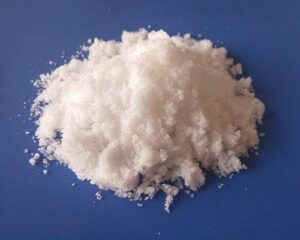
read more: Sulfur and its Origins and Applications
Properties and applications of zinc sulfate
What is the most important information to know about zinc sulfate tablets? Since the most common structure of this substance is a zinc tablet or zinc capsule. To use these drugs, you should check the instructions on the label and the drug package.
Zinc is a natural mineral. Zn is important for the growth and health of body tissues. Zinc sulfate is used to treat and prevent zinc deficiency. Pregnant women, children and infants should be very cautious in consuming zinc sulfate. Taking more zinc by pregnant mothers can harm the fetus.
The recommended allowance of zinc sulfate changes with age. You must follow your doctor’s instructions for taking these medications. Medicines should be stored at room temperature, away from heat and moisture.
Physical and chemical characteristics of zinc sulfate
| Introducing the composition | |
| IUPAC nomenclature Zinc sulfate | |
| Other names: White vitriol Goslarite | |
| Identifier indicators | |
| CAS Number | 7733-02-0 7446-19-7 (Monohydrate) 13986-24-8 (hexahydrate) 7446-20-0 (Heptahydrate) |
| EC Number | 231-793-3 |
| E519 | E Number |
| PubChem CID | 24424 |
| properties and characteristics | |
| chemical formula | ZnSO4 |
| Molar mass | 161.47 g/mol (Anhydrous form) 179.47 g/mol (Monohydrate form) 287.53 g/mol (Heptahydrate form) |
| Appearance | White powder |
| smell | Odorless |
| density | 3.54 g/cm3 (Anhydrous form) 2.072 g/cm3 (Hexahydrate form) |
| melting point | 680 °C (1,256 °F; 953 K) Decomposes at this temperature (anhydrous form) 100 °C (Heptahydrate form) 70 °C, It decomposes at this temperature (Hexahydrate form) |
boiling point | 740 °C (1,360 °F; 1,010 K) (Anhydrous form) 280 °C, It decomposes at this temperature (Heptahydrate form) |
| Solubility in water | 57.7 g/100 mL, Anhydrous form (20 °C) in aqueous solution with pH < 5 |
| Solubility in other solvents | Alcohols |
| Thermochemical properties | |
| Molar standard entropy (So298) | 120 J·mol−1·K−1 |
| Standard enthalpy of formation (ΔfH⦵298) | −983 kJ·mol−1 |
| Point flammability | Non-flammable |
| Related compounds | |
| Other cations | Cadmium sulfate Manganese sulfate |
| Relevant compounds | Copper(II) sulfate |
Applications of zinc sulfate
The hydrated structure for this material, especially the heptahydrate, is the most widely used and commercial main structure. The main application of zinc sulfate is as a coagulant in the production of artificial silk. This material is also used as an electrolyte for zinc plating, as a colorant in dyeing, and as a preservative for skin and leather.
On the other hand, zinc sulfate is used to provide zinc in animal feed, fertilizers, toothpastes and agricultural sprays. Zinc sulfate, like many other zinc-containing compounds, can be used to control moss growth on roofs in humid areas.
Application in agriculture as fertilizers
Zinc fertilizers can help farmers overcome zinc deficiency in crops, which can reduce harvests, lower quality, and increase disease risk. Zinc deficiency is a common problem in many parts of the world, especially in soils that are alkaline, calcareous, sandy, or organic.
Zinc (Zn), one of the micronutrients and essential elements and an important builder of various enzymes and proteins – only in small amounts – is required by plants. However, it is very important for plant growth because it plays a role in a wide variety of processes. The normal range of zinc in plant tissue is 15-60 ppm. When the pH of the environment is low, zinc is considered a basic requirement for plant absorption.
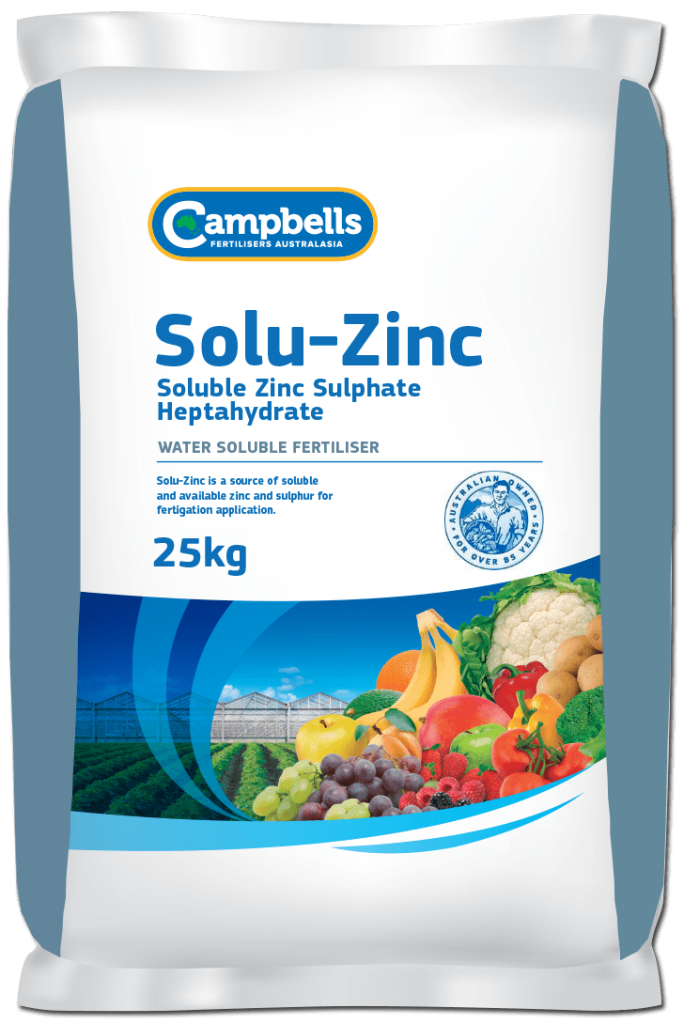
Zinc is also found in high amounts in some water sources, and zinc can also be found in water if it comes into contact with galvanized metal surfaces. it is found in most water-soluble fertilizers. Fertilizer zinc sulfate, ammonium nitrate-zinc, or zinc chelate can be used.
Zinc fertilizers can be applied to the soil or sprayed on the leaves of the plants. The most widely used sources of zinc fertilizers are zinc sulfate and zinc oxide, which have different solubility and availability in the soil. Zinc chelates are also used as zinc fertilizers, which are more stable and less likely to precipitate or bind to the soil.
The effectiveness of zinc fertilizers depends on several factors, such as the type, amount, timing, method, and location of application, as well as the soil properties, crop variety, and environmental conditions. The crop uptake of zinc which is applied to the soil is generally low (<1%), so the optimal rate and frequency of application need to be determined based on soil tests and crop response.
The action of zinc activates enzymes that are responsible for the synthesis of certain proteins. This substance helps the plant to resist the cold in the formation of chlorophyll and some carbohydrates, the conversion of starch into sugars, and its presence in the plant tissue. Zinc is essential in the formation of auxins that help regulate stem growth and proliferation.
Zinc fertilizers not only improve crop yields and quality but also enhance human health by increasing the zinc content of food crops. Zinc is an essential micronutrient for humans, involved in many metabolic processes and immune functions. Zinc deficiency can cause impaired growth, development, and immunity, as well as an increased risk of infections and chronic diseases.
Zinc fertilizers are an important tool for addressing both food security and quality in a growing population. However, more research is needed to develop more effective and affordable zinc fertilizers and to optimize their management practices.
Zinc Sulfate Fertilizer: A Double-Edged Sword for Crops
Although zinc poisoning does not occur, it can negatively affect the growth and quality of the crop in plants. Any deficiency or toxicity must be corrected before the damage to the product becomes irreparable.
Sometimes the extra Zn in the plant growth environment can compete with the absorption of phosphorus, iron, manganese or copper and cause their deficiency in the plant tissue. However, it is best to use a complete micronutrient fertilizer to avoid nutrient imbalances that lead to deficiencies in other micronutrients.
Zinc sulfate also has some drawbacks that farmers should be aware of. some of the disadvantages of zinc sulfate fertilizer are:
- It can cause soil acidity and reduce the availability of other nutrients, such as phosphorus and iron.
- It can leach into groundwater and contaminate drinking water sources, posing health risks to humans and animals.
- It can increase the salinity of the soil and affect crop growth and quality, especially in arid regions.
- It can interact with other fertilizers and reduce their effectiveness, such as zinc-enriched phosphatic fertilizers.
- It can be toxic to plants if applied at high rates or in sensitive crops, such as legumes and potatoes.
sources: ScienceDirect, National Pesticide Information Center, and Frontiers
Safety of zinc sulfate
Zinc sulfate powder is irritating to the eyes. Consuming small amounts of this compound is usually safe and does not cause any particular toxicity.
it is added to animal feed as an essential source of zinc, from a few hundred milligrams per kilogram of feed. Its excessive consumption causes acute discomfort in the stomach, which is accompanied by nausea and vomiting. This amount for consumption includes 2-8 mg per kilogram of body weight.
Prolonged contact with zinc sulfate solid powder may cause irritation. In case of accidental ingestion, it causes irritation of the digestive system. If the dust of this compound enters the respiratory system, it will irritate the respiratory system.
It is chemically stable. You should avoid hot conditions. No incompatible materials have been identified for zinc sulfate. Hazardous decomposition products of zinc sulfate include sulfur oxides, toxic fumes of zinc oxide.
It is chemically stable. You should avoid hot conditions. No incompatible materials have been identified for zinc sulfate. Hazardous
decomposition products of zinc sulfate include sulfur oxides, toxic fumes of zinc oxide.
Maintenance
Zinc sulfate storage bags should be stored in dry and cool warehouses away from any moisture. Avoid contact with skin, eyes, and clothes. You should avoid eating and inhaling while working with this substance in the industry.
Bags and containers for zinc sulfate must be kept in a tight container with a closed lid. Stores of these materials should be kept away from any incompatible materials and in a cool and well-ventilated place.
Packing
Packages containing zinc sulfate in crystalline and powder form are available in the market in weights of 10 kg, 25 kg and 50 kg. This compound is sold in crystalline form with a purity of 18-20% or 24%. The sale of zinc sulfate powder is generally carried out with a purity of 32% or 22%.
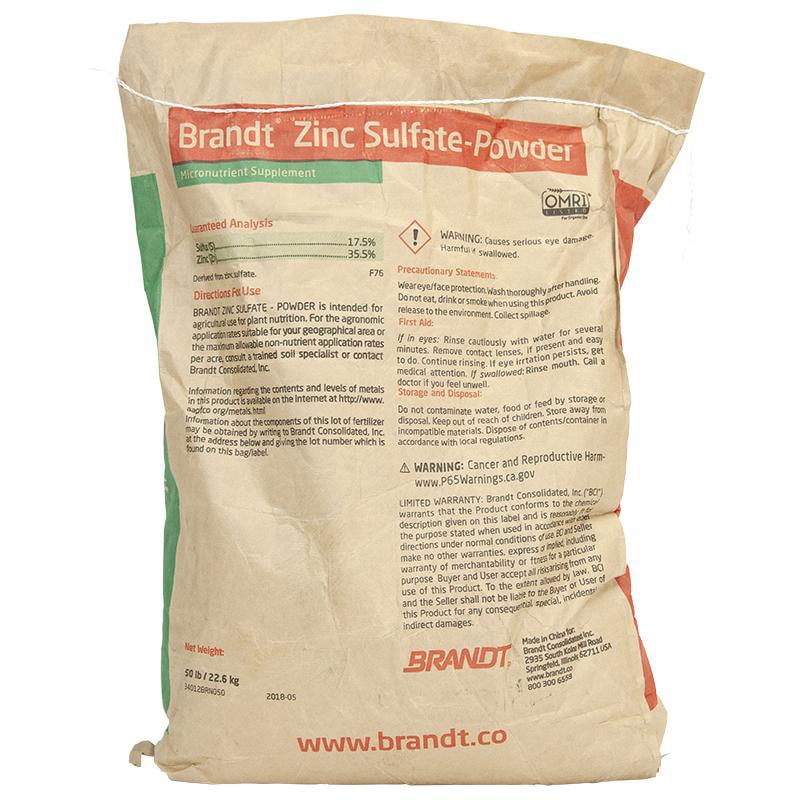
Market situation and purchase and sale of zinc sulfate
The global market for this material is segmented based on type, application, and consumer industry. Based on the type of hydrated structure, zinc sulfate can be divided into different forms; anhydrous zinc sulfate; zinc sulfate monohydrate; Zinc sulfate hexahydrate, and zinc sulfate heptahydrate.
Zinc sulfate applications determine how much supply and demand there is. Pharmaceuticals, food supplements, chemical products, fertilizer, animal feed, herbicides, production of colors and pigments, catalysts, preservatives, electrolytes, water purification, and production of synthetic fibers, are the most important uses of this substance.
To get the price of zinc sulfate, you can refer to the Shimico products page.
Sources:
Last Seen














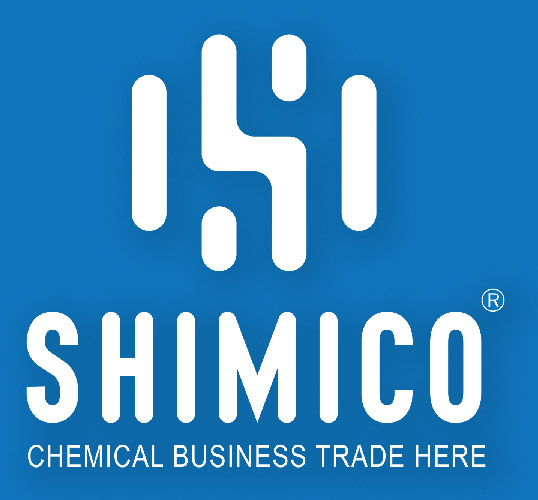
Users Comment
How Urea Can Hydrate and Exfoliate Your Skin
Sodium carbonate| Soda ash; features and applications
Copper Sulfate; Features and applications
Sulfur; Features and applications
Urea; Features and applications
Sodium bicarbonate; Features and applications
Ammonium Sulfate; Features and applications
What is the use of caustic soda? An Overview of the caustic soda uses
Caustic soda flakes and the methods of production
Analysis of September manufacturing trends in Asia
The impact of growth in major Asian economies on petrochemical demand
Aramco loan $2 billion to Petro Rabigh to cover cash shortfall
16Th International ArabPlast 2023
International Iran Conmine 2023
International Iran Nano 2023
17Th International Iranplast Fair 2023
12th International Composite Expo 2023
International IFarm Agro Fair 2023
22Nd International Paint Resin Coatings Fair
Sodium carbonate| Soda ash; features and applications
Copper Sulfate; Features and applications
Sulfur; Features and applications
Urea; Features and applications
Sodium bicarbonate; Features and applications